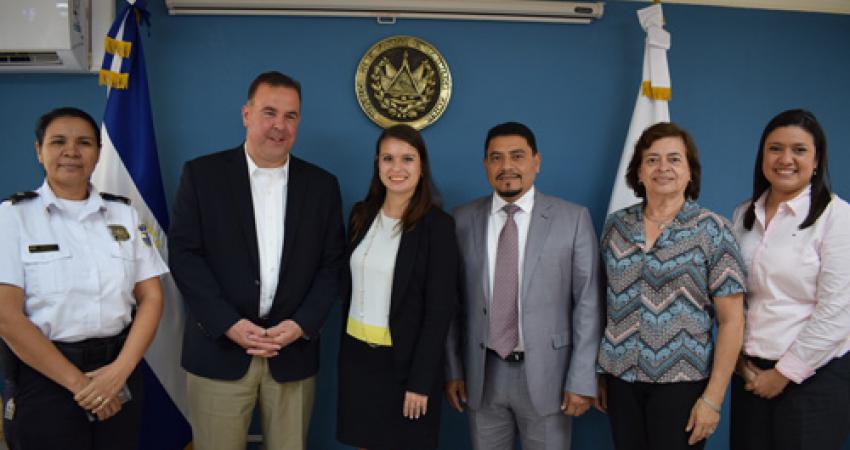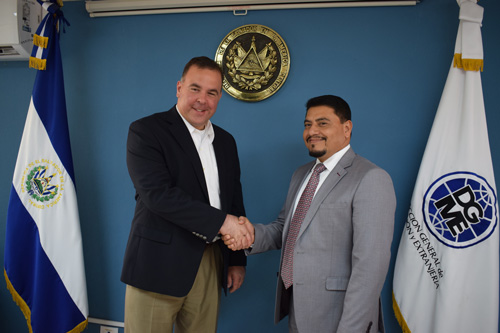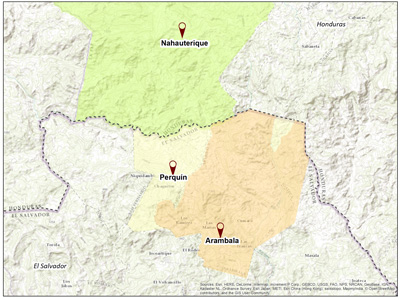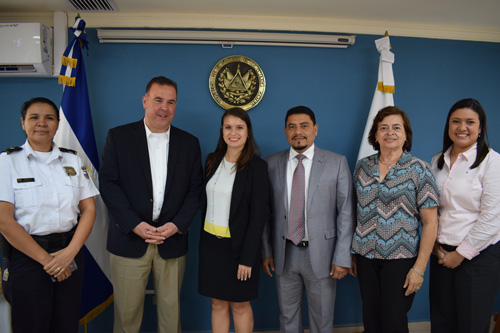El Salvador highlights the achievements reached with the support of the Mesoamerica Program

San Salvador, El Salvador. The modernization of migration management through a new law project; the development of manuals and protocols for the attention of migrant children and adolescents; a pilot project to provide identification cards to children and adolescents who live in border communities; and the provision of first-aid kits to migrants are some of the accomplishments highlighted by the Salvadorian Authorities, thanks to the support of the Mesoamerica Program.

The presentation of accomplishments took place on June 20th with the presence of Christopher Ashe, Acting Director of the Office of International Migration, Bureau of Population, Migration, and Refugees, Department of State of the United States of America, donor of the Mesoamerica Program.
Representatives from the General Directorate of Migration (DGME), the Salvadorian Institute for the Comprehensive Attention of Children and Adolescents (ISNA), the National Civil Police and the International Organization for Migration assisted to foster a dialogue with the donor about the contributions of the Program to the advances and challenges of the country in migration issues.
The General Directorate of Migration mentioned the technical support for the modernization of migration management through the discussion of law projects such as the Law of Migration and the Transitory Law of Migration for the Regularization of Central American people in irregular migratory conditions. At a more operative level, the Salvadorian authorities highlighted the development of the Protocol for the Attention of Foreign Migrant Children and Adolescents, which has as an objective to build and implement efficient acting mechanisms, routes and procedures for the immediate identification, attention and protection of foreign migrant children and adolescents, and their families, in Salvadorian territory.

Another contribution is the Identification Card Pilot Project for more than 3 thousand children and adolescents living in border communities with Honduras; which will contribute to improving their quality of life and preventing them from becoming victims of crimes like trafficking and smuggling.
The Salvadorian Institute for the Comprehensive Protection of Children and Adolescents, on their side, pointed out the fact that they included in their curriculum the Specialized Course on Migrant Children, with a focus on unaccompanied and/or separated migrant children, developed by the Mesoamerica Program.
´´The program seeks, above all, to respond to the needs of the institutions, and we are glad to see that that’s how it’s executed in El Salvador. The program is based on the cooperation of allied countries, with the technical support of IOM´´, mentioned Christopher Ashe.
Through the provision of first-aid kits, which include non-perishable food, the Civil National Police was able to provide in certain border areas, assistance to migrants facing the highest risks associated with irregular migration, with a focus on migrant children. The entity also highlighted the support for the creation of the Manual of Procedures and Management of Border Areas for the Attention of Migrant Children and Adolescents, and their Families; which has as an objective to establish specific guidelines for this population.

´´Through this program, IOM has, and is, comprehensively supporting us. We hope that this visit has allowed for the visualization of the results of this collaboration, including the less tangible, but most important results for us such as the technical support in legal reforms´´ mentioned Hector Antonio Rodríguez, General Director of the General Directorate of Migration.
The Regional Mesoamerica program aims to strengthen capacities for safe, orderly, and regular migration. In El Salvador, its territorial presence extends to the borders of El Amatillo, La Hachadura and Angiatú, and its support has strengthened the migration management capacities of Salvadorian migration officials, police, children institutions, border delegates, and health officers.